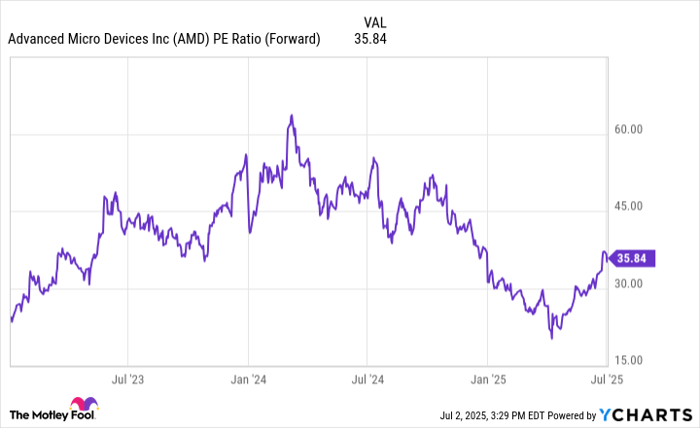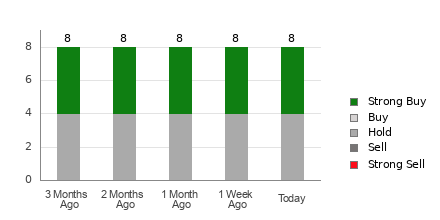Revival Ahead for Home Depot: Key Factors Suggest a Strong Comeback
Home Depot (NYSE: HD) is known as one of the best-performing stocks in history. However, the home improvement retailer has recently encountered challenges. It has faced hurdles in the housing market, similar to many of its competitors, resulting in a decline in comparable sales and profits over the past few quarters.
Image source: Home Depot.
Nevertheless, signs indicate that Home Depot may be gearing up for a significant recovery. Here’s why that could happen.
1. Signs of Housing Market Recovery
The reasons behind Home Depot’s recent struggles are clear. The housing market has been weak since the pandemic, with soaring mortgage rates leading many homeowners to stay put, fearing the loss of favorable rates.
Recently, the Federal Reserve has begun lowering interest rates and plans to continue this trend over the next year. This should help decrease mortgage rates and stimulate a housing recovery. Additionally, lower rates are expected to encourage spending on home improvement projects—crucial for Home Depot’s business.
American homeowners have amassed significant equity thanks to rising home values and the “lock-in” effect. A decline in interest rates should likely lead to increased spending at Home Depot, reversing years of weak home improvement investments. With existing home sales down about 40% from pre-pandemic levels, there’s substantial potential for growth in the housing sector as conditions improve.
2. Promising Prospects from the SRS Distribution Acquisition
This year, Home Depot made an important strategic move by acquiring SRS Distribution, a top firm in building materials distribution. This market has been one of the fastest-growing segments in the home improvement sector. Through this acquisition, Home Depot will strengthen its position in the professional market, where it already holds an advantage over rival Lowe’s, and be better positioned to benefit from an expected surge in new home sales.
There is an estimated shortage of millions of homes in the U.S., prompting both presidential candidates to support initiatives for new construction. An increase in home building would benefit both SRS Distribution and Home Depot significantly, further aiding the retailer’s recovery.
This acquisition expands Home Depot’s total addressable market by about $50 billion, increasing it to $1 trillion.
3. Competitive Strengths Remain Intact
Despite recent setbacks because of cyclical downturns in the housing market, Home Depot remains well-positioned within its industry. It operates in a market primarily shared with Lowe’s, which gives it a competitive edge due to its vast superstore network and well-priced inventory.
The company has invested its profits back into e-commerce and technology, enhancing the shopping experience through its app. Despite the current challenges, it maintains a strong operating margin of 15% in the latest quarter.
High barriers to entry characterize the home improvement retail sector, and few companies pose real threats to Home Depot’s dominance. Not even Amazon has made significant inroads in this space. Home improvement products like hardware, appliances, and lumber will continue to drive demand, positioning Home Depot for robust growth once the housing market stabilizes.
A New Investment Opportunity Awaits
If you’ve ever thought you missed out on investing in the top-performing stocks, you might consider this time to be different.
Occasionally, our expert analysts identify a “Double Down” stock—a promising company poised for significant growth. If you’re concerned about missing your chance to invest, now might be the perfect moment to act before it’s too late. Here’s a glimpse of past performance:
- Amazon: A $1,000 investment made when we recommended it in 2010 would now be worth $22,469!*
- Apple: A $1,000 investment suggested in 2008 would have grown to $42,271!*
- Netflix: Investing $1,000 when we recommended it in 2004 would now yield a staggering $411,970!*
Currently, we are issuing “Double Down” alerts for three exceptional companies, and opportunities like these don’t come around often.
See 3 “Double Down” stocks »
*Stock Advisor returns as of November 4, 2024
John Mackey, former CEO of Whole Foods Market, an Amazon subsidiary, is a member of The Motley Fool’s board of directors. Jeremy Bowman has positions in Amazon. The Motley Fool has positions in and recommends Amazon and Home Depot. The Motley Fool recommends Lowe’s Companies. The Motley Fool has a disclosure policy.
The views and opinions expressed herein are the views and opinions of the author and do not necessarily reflect those of Nasdaq, Inc.







